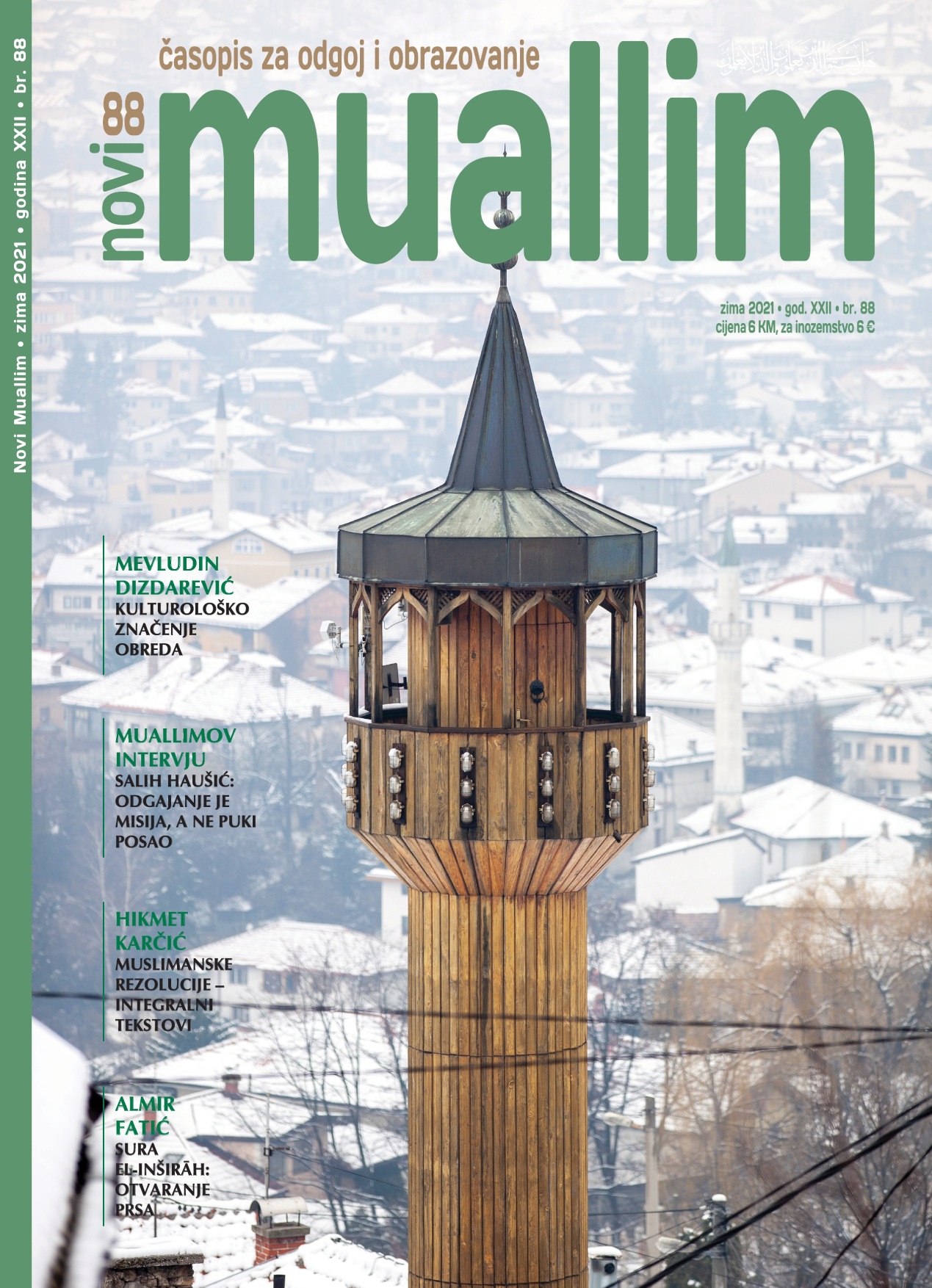UNIFICATION OF THE CURRENT DISCOURSE ON ISLAM, FINANCE AND ECONOMICS FOR THE PURPOSE OF CREATING A CASE OF ISLAMIC MORAL ECONOMY
DOI:
https://doi.org/10.26340/muallim.v22i88.1899Keywords:
islamic moral economy, islamic political economy, islamic financeAbstract
UDK 330:28
The founding fathers of Islamic economics responded to the challenges faced by capitalism and socialism by attempting to construct an economic theory that is based on Islamic ontological base, values and practices. This new economic model and theory attempt remains an unfinished project due mainly to the emergence and prioritising of Islamic finance. However, this research argues that rather than developing the Islamic system of economics on neo-classical economics, Islamic economics should be constructed on a political economy frame leading to Islamic political economy (IPE). and should be substantiated in its contents as a moral economy. Because, its overall end-goal seeks to reintegrate human well-being and social justice and develop a ‘moral economy’ within a particular social formation based on substantive morality of Islam. In other words, Islamic economics aims at embedding economic and financial relations and activities within the social formation of Islam. Thus, this apprehension also stresses emphatically on the spiritual aspect in terms of the welfare of society in addition to the material well-being and refers to embeddedness in terms of economics being submerged into value system and normative world by having also non- economic factors defining economic behaviour. Consequently, Islamic economics, by definition, is a moral economy in its essence and therefore as a substance of IPE it should be constructed as Islamic moral economy (IME). Hence, the paper aims to construct Islamic economics as a moral economy to produce Islamic moral economy by identifying the implications and consequences of Islamic substantive morality in leading to Islamic moral economy. In defining and exploring aspects of Islamic economics to substantiate IME, the articulation of moral economy within Islamic economics through ontological and epistemological base of Islam and through historical practice and contemporary experience of economics and finance in the Islamic and Muslim context is consulted. It is noted that Islamic finance is considered as a subsystem of IME. However, its formative form was unable to get rid of the trappings of conventional financial institutions by mimicking and mirroring conventional finance through giving up embedded or substantivist finance orientation as proposed by IME. Thus, IME provides the substance through which evaluation of IBF is possible in claiming its social failure. This article provides a comparison of market and Islamic moral economy, and provides a critical review of today’s practice of Islamic finance in the light of Islamic moral economy principles. The article provides a comparison of market and Islamic moral economy, reminding that Islamic moral economy is not only a phenomenon of the modern age, but institutions like Hisba and Achilles existed centuries before, and are the forerunners of today's supervisory and educational institutions. The article also provides a critical review of today’s practice of Islamic finance in the light of Islamic moral economics. We conclude that Islamic banking as its operational form has not met the expectations of Islamic moral economy due to mirroring conventional banks and its orientation towards profit maximization, which is a feature of the neoclassical school of economics.
Downloads
Published
How to Cite
Issue
Section
License
Naknada:
a. Časopis ne naplaćuje naknadu za obradu članaka (APC) i naknadu za podnošenje članaka.
Autori koji objavljuju u ovom časopisu pristaju na sljedeće uvijete:
- Autori zadržavaju autorska prava i pružaju časopisu pravo prvog objavljivanja, pri čemu će rad jednu godinu po objavljivanju biti podložan licenci Creative Commons imenovanje koja omogućuje drugima da dijele rad uz uvijet navođenja autorstva i izvornog objavljivanja u ovom časopisu.
- Autori mogu izraditi zasebne, ugovorne aranžmane za ne-ekskluzivnu distribuciju rada objavljenog u časopisu (npr. postavljanje u institucionalni repozitorij ili objavljivanje u knjizi), uz navođenje da je rad izvorno objavljen u ovom časopisu.


